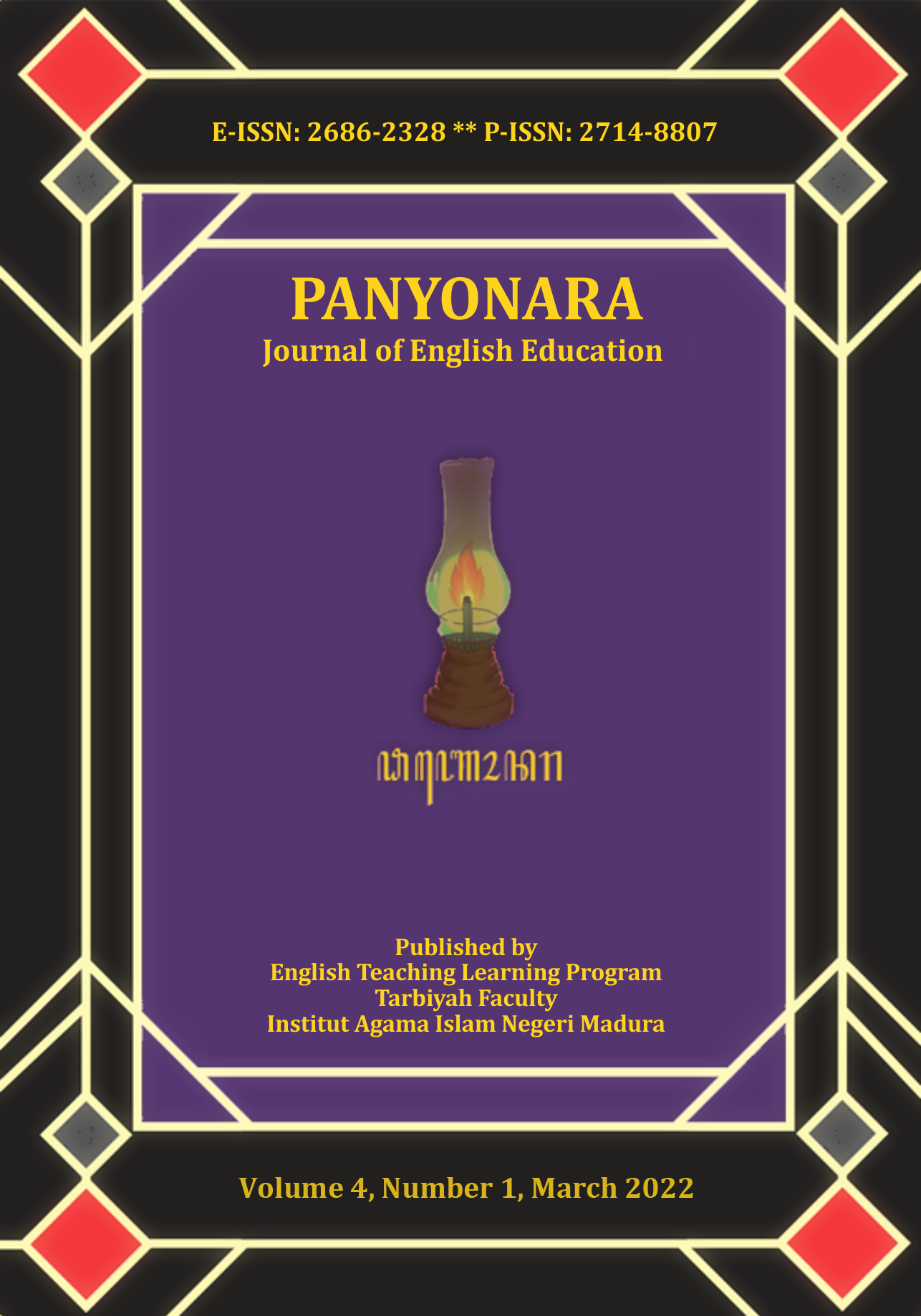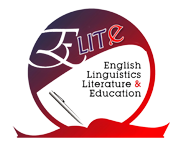Students’ Experience with Final Project: A Case Study of Popular Culture as A Research Object
 Abstract views: 214
,
Abstract views: 214
,
 PDF downloads: 213
PDF downloads: 213
Abstract
Choosing an object of the study can be a boomerang to some researchers, not to mention for the university students who have to conduct the final project research. This study aims to find out the experience encountered by English Education Department students in a particular institute when they choose popular culture as the object of the study. This is a case study research which applies interview as data collection and descriptive analysis in the analysis process. The result of the study embodies four spectrum that can define the experience of the students in conducting their final project research, namely motivation, research environment, research orientation, and self-efficacy. This research result shows that popular culture as an object of the study can make the research process more fun and give the students the right track to finish their research instead of some lacking in the reference resource and academic atmosphere provided and maintained by the institute.
Downloads
References
Petrone, R. (2013). Linking Contemporary Research on Youth, Literacy, and Popular Culture With Literacy Teacher Education. Journal of Literacy Research, 45(3), 240–266. https://doi.org/10.1177/1086296X13492981
Shaw, K., Holbrook, A., & Bourke, Sid. (2013). Student experience of final- year undergraduate research projects: an exploration of ‘research preparedness’. Studies in Higher Education, 38(5), 711-727. DOI: 10.1080/03075079.2011.592937
Din, U.K.S., Shahabuddin, F.A., Rambely, A. A. S., Suradi, N. R. M., Ahmad R.R., Majid, N., Ali Z. M., Mamat, N. J. Z. (2010). Student's Perceptions on the Implementation of the Final Year Research Project: A Case Study. Procedia - Social and Behavioral Sciences. Volume 8. 439-445. https://doi.org/10.1016/j.sbspro.2010.12.060.
Thompson, P.M. (2007), The Influence of Popular Culture and Entertainment Media on Adult Education. New Directions for Adult and Continuing Education, 83-90. https://doi.org/10.1002/ace.270
Clapton, W. (2015). Pedagogy and Pop Culture: Pop Culture as Teaching Tool and Assessment Practice. E-IR’s Edited Collection Popular Culture and World’s Politics: Theories, Methods, and Pedagogies. 169-175.
Creswell, J. W. (2009). Research Design: Qualitative, Quantitave, and Mixed Methods Approach (3rd Edition). New York: Sage Publications, Inc.
Storey, J. (2009). Cultural Theroy and Popular Culture (5th Edition). Harlow: Longman
Jantzen, Christian. (2013). Experiencing and Experiences: A Psychological Framework. Handbook on the Experience Economy. 146-170. DOI: 10.4337/9781781004227.00013
Lovitts, B. (2005). Being a good course-taker is not enough: a theoretical perspective on the transition to independent research. Studies in Higher Education. 30(2): 137–54.
Sudiran, S., Kurniawati, D. E., & Adityo, A. (2020). Designing English Teaching Materials Containing Popular Culture. Jurnal Dedikasi, 17(2), 1-6. doi:https://doi.org/10.22219/dedikasi.v17i2.14697
Jeng, J. L., Using Popular Culture to Promote Learning in EFL Classrooms: A Case Study, Procedia - Social and Behavioral Sciences, Volume 112, 209-218. https://doi.org/10.1016/j.sbspro.2014.01.1157.
Baoan, Wang (2008). Application of popular English songs in EFL classroom teaching, Humanizing Language Teaching, 10(3). https://old.hltmag.co.uk/jun08/less03.htm (accessed 15.01.2022; last access 26.02.2022).
Lin, A. (2012). Popular culture, new literacies, and English language education: paradigmatic change in educational design in the era of Web 2.0 and beyond. Selected Papers from the 21 International Symposium on English Teaching. 60-78. Taipei: Crane Publishing Company.
Lee, Sojung & Bai, Billy. (2015). Influence of popular culture on special interest tourists' destination image. Tourism Management. 52.
The journal uses an Open Access policy under a Creative Commons Attribution-NonCommercial 4.0 International License. Authors who publish with this journal agree to the following terms:
- Authors retain copyright and grant the journal right of first publication with the work simultaneously licensed under a Creative Commons Attribution License that allows others to share the work with an acknowledgment of the work's authorship and initial publication in this journal.
- Authors are able to enter into separate, additional contractual arrangements for the non-exclusive distribution of the journal's published version of the work (e.g., post it to an institutional repository or publish it in a book), with an acknowledgment of its initial publication in this journal.
- Authors are permitted and encouraged to post their work online (e.g., in institutional repositories or on their website) prior to and during the submission process, as it can lead to productive exchanges, as well as earlier and greater citation of published work.
















